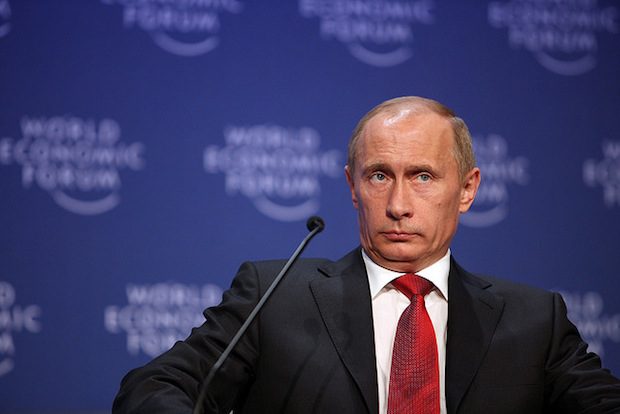Bizarro Putin

The Russian-American journalist Keith Gessen, who is very much not an admirer of Vladimir Putin, says that the Russian president is a nasty piece of work, but he would behave in the same way if he were a nice guy. Excerpts:
And this should give pause to anyone who believes that Putin’s behavior is aberrant—the product of a uniquely evil or crazy mind—and that he’s leading Russians in a direction opposed to what they perceive to be their true interests. Earlier this month a British legislative committee accused Britain and the Europeans of a “catastrophic misreading” of Russia, one that naively concluded Moscow was heading down the same democratic, liberalizing road as the rest of us when in fact “Russia is increasingly defining itself … as a geopolitical and ideological competitor.” This error of judgment, the report said, caused the West to go “sleepwalking” into the Ukraine crisis.
Yet even if the fondest dreams of these slumbering Western politicians had come true and they had encountered a Nice Putin—a hypothetically more friendly Russian leader—they would still have gotten him wrong. Russia will, one hopes, eventually change its leadership, but it is not going to be able to change its geographic location, or its historic associations, or its longstanding wish to keep the West—which hasn’t always crossed the border bearing flowers—at bay. And that holds many lessons for the future.
Gessen goes through the details of Russian politics in the post-communist era, and makes a convincing, easy case that after the catastrophe of the Yeltsin years, no nice, liberal Russian politicians had the remotest viability. A Putin figure was inevitable, and makes sense, given what Russia has been through. More:
The other thing I keep thinking about is Nicholas II, Russia’s last tsar. Though he has since been sainted by the Russian Orthodox church, Nicholas was no saint. He tolerated terrible cruelty in his dominions, authorized a stupid, losing war against Japan, refused to grant the people a constitution and enjoyed reading aloud from the Protocols of the Elders of Zion. Nonetheless, he is frequently described by historians as a gentle, polite, kind-hearted family man who doted on his wife and children and enjoyed the outdoors. He was related by blood and manners to half the royal families in Europe.
But when this charming Nicholas, by then already imprisoned with his family in Yekaterinburg, awaiting their brutal execution, read about the Treaty of Brest-Litovsk, whereby the Bolsheviks surrendered Belarus, Ukraine, the Crimea, the modern-day Baltic States and part of Georgia to the Germans, he said he would rather cut off his hand than sign such a treaty. And yet Russia in 1991 lost more than the Bolsheviks had given up in 1918.
We keep hearing that with the invasion of Crimea, Russia has upset the stable post-Cold War order. But I find myself intrigued by the German political scientist Ulrich Kuhn’s argument that, far from being an aggressive power over the past 20 years, Russia has tried to defend the status quo. As the timeline of NATO expansion above might indicate, if anyone has been “re-drawing the map of Europe,” it is not, or at least primarily, the Russians.
Read the whole thing. It’s a really good piece, and the fact that it is written by Gessen, who cannot stand Putin, makes it more persuasive. We keep waiting for the liberal, democratic, Western-oriented Russian leader, like we keep waiting for the liberal, democratic, Western-oriented Arab Muslim leader. Because, we think, deep down, inside every single person in the entire world is an American, just waiting to be liberated.